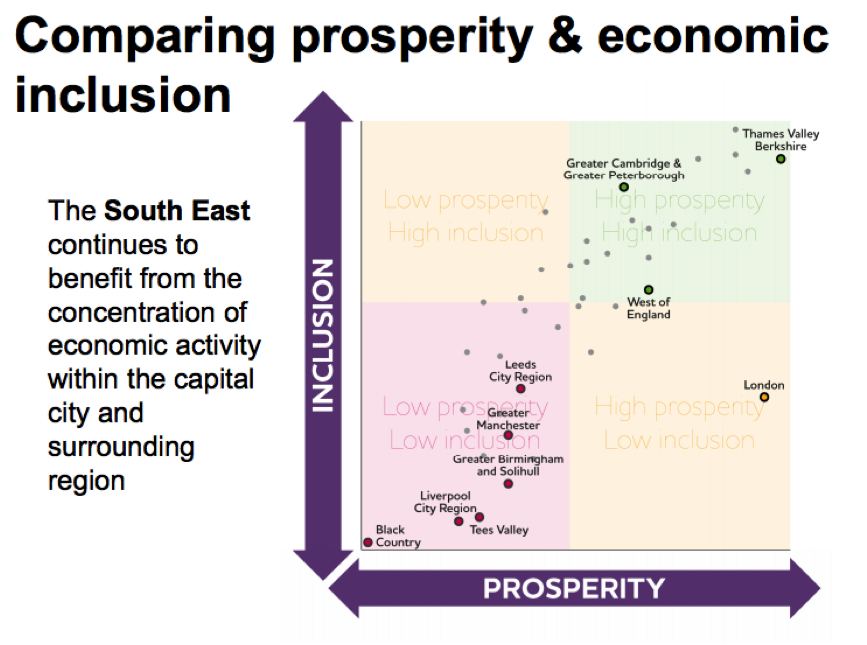Today the University of Manchester and Joseph Rowntree Foundation published the second annual Inclusive Growth Monitor which examines economic growth across the country and which communities are benefiting and which missing out.
It found that many of the regions with mayors, elected last week, are among the areas facing the biggest challenges in achieving inclusive growth.
Dave Innes, economist at JRF, said: “Ensuring everyone benefits from economic growth should be the number one item on the new mayor’s to-do list. Our research highlights that while many places have made encouraging progress, people living are still not benefiting from the country’s economic success.
“Driving up employment, wages and skills are crucial to delivering inclusive growth and rebalancing the economy. Mayors should work with businesses and the national government to deliver prosperity and opportunity for all within their regions.”
Researchers looked at all 39 Local Enterprise Partnerships (LEPs) in England and scored them on 18 different prosperity and inclusion-based indicators covering skills, jobs, and economic output . They considered how much prosperity is accompanied by improvements in incomes at the bottom of the distribution, as well as unemployment and the cost of living.
The data indicates the Liverpool City Region, Tees Valley, the Black Country and Greater Birmingham and Solihull – included in the new West Midlands metro mayor region – were among the areas with the biggest challenge to boost both prosperity and inclusion overall.

The Tees Valley and North Eastern LEPs were among the areas seeing fastest growth in prosperity, alongside London, Oxfordshire, Worcestershire and Enterprise M3 in Hampshire and Surrey.
But the report states “despite some progress, the Tees Valley and North Eastern LEPs however still have some of the lowest levels of prosperity and economic inclusion overall”.
On inclusion, York, North Yorkshire and East Riding, Stoke on Trent and Staffordshire, Cheshire and Warrington, Hertfordshire, Greater Cambridge and Peterborough and Thames Valley Berkshire showed most progress over the last five years.
The Liverpool City Region and Tees Valley were around the middle of the pack for progress on inclusion, showing some progress but much for the mayors still to do.
Anthony Rafferty, senior researcher at the University of Manchester, said: “For national and local government the Inclusive Growth Monitor lays down the considerable challenge of reflecting on how national policy and innovation at the local level may improve performance in terms of both economic inclusion and prosperity, helping deliver a more equitable and inclusive form of economic growth.”




















